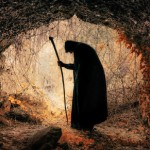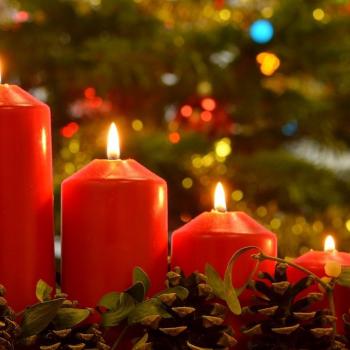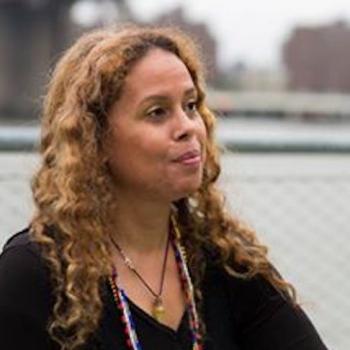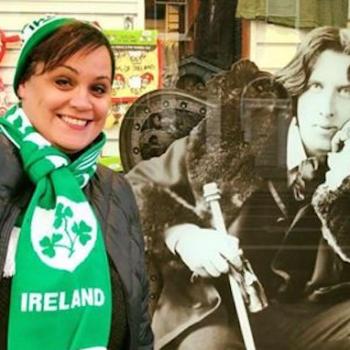The new Christmas rage coming from Fundamentalist Christians all centers around a simple red cup. In their press release, Jeffrey Fields, vice president of Design and Content at Starbucks stated that the coffee chain was going for a minimalist, simple design to reflect the “sanctuary” Starbucks offers to many during the holiday.
Joshua Feuerstein and other fundamentalists claim that it’s all just one more step in the “War on Christmas” being waged between capitalism and Christians. Even if you don’t know the details of this particular story, it’s a familiar song and dance, because it gets brought up every year. It’s almost become a holiday tradition now: put up the holiday tree, buy your holiday cards, and watch Christians work themselves up in a froth about the destruction of Christian values.
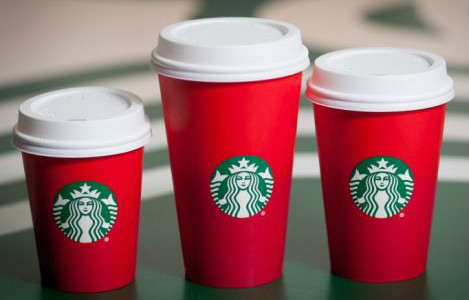
There’s a part of me that wants to reach out to these fundamentalists-to call to them “I get it. I used to be one of you, and it’s okay, but this isn’t the right way.” But it’s hard to feel charitable, even around the holiday season. I have really positive memories of my childhood Christmases.
Growing up in a family of Southern Baptists, Christmas was an extremely important holiday. We put the Christmas tree up right after Thanksgiving (along with three nativity sets) and my mother would organize projects for the children at church to do. We would watch Christmas movies every single day of the month of December, go caroling to nursing homes with the church group, hold a candlelight service the night before Christmas, and of course, all the kids would participate in the nativity play. It really did seem like it was the most wonderful time of the year.
And I’m sure it’s one of the reasons Christians are so protective of their holiday. Growing up in a tight-knit Southern Baptist congregation was a hard childhood to have, filled with shame and fear-mongering and gossip. I felt like, the rest of the year at church, I was constantly being held up to the measuring stick of “good Christian” and found wanting -and that my lack of faith had a genuine negative impact on the salvation of the human race. But Christmas is the one time a year that people really exemplify good will towards their fellow, and it’s filled with stories of Christmas miracles: tales of hope and charity and love.
Which makes it a bit ironic, then, to hear these self-same Christians making plans to boycott the entire Starbucks franchise just because their coffee cup doesn’t have any snowflakes on it.
Two buildings over, the history department secretary has put up Christmas decorations already. But if I were to put up more Yule-inspired decor (a tribute to Persephone is my favored altar of choice) I would receive a call from Human Resources. This year, Yule falls on a Tuesday. And while my organization was so very kind enough to just this past year allow its employees to take two unpaid holidays on the basis on religion, Christmas is one that meanwhile I will be paid to take off. And every time someone who espouses the Christian faith claims how hard it is for them to practice in this nation, it drives the knife home a little deeper. I attended a Christmas nativity service with my fundamentalist Southern Baptist family for my Yule holiday last year.
Worse still, what purpose does it serve, sending an angry tweet about the new Starbucks cups? Hearing Christians complain that there aren’t enough Jesus-inspired snowmen on their coffee-delivering vessels only reminds me of the million and one reasons why I will never again count myself among their number.
And though it wasn’t an easy decision to switch to the one religion that had always been described to me as “the devil’s tools,” it ended up being the healthiest decision I could have made. It’s been six years since I’ve switched to paganism. And while eleven months of the year, I ignore Christianity and it ignores me, I find that impossible in December. I miss the sense of community in celebrating a holiday for a month, and I resent the way Christians have turned it into a political hot-button topic.
 With the small, almost nonexistent pagan community here in this town, I’ve only been able to celebrate Yule every other year. Most of the time, practicing feels like carving out a sliver of spare time as I can find it. Making things work. Trying to find the pagan spirit in attending Handel’s Messiah. Weeding through Christmas songs to find the ones that don’t talk about an infant that was probably born in the spring anyway . . . . It can feel very isolating to be surrounded by angry Christian “Merry Christmas” hype.
With the small, almost nonexistent pagan community here in this town, I’ve only been able to celebrate Yule every other year. Most of the time, practicing feels like carving out a sliver of spare time as I can find it. Making things work. Trying to find the pagan spirit in attending Handel’s Messiah. Weeding through Christmas songs to find the ones that don’t talk about an infant that was probably born in the spring anyway . . . . It can feel very isolating to be surrounded by angry Christian “Merry Christmas” hype.
I, for one, think the red cups are beautiful. They do make me think of simplicity and sanctuary. Of a return to warmth that many winter holidays share as a core tenet. The nights are long and lonely, and we seek to warm ourselves by the fire, or with a hot cup of coffee.
And if there aren’t any Evangelicals in my Starbucks in the days leading up to Christmas because they’re all too busy protesting about how the lack of holly leaves on their paper cup interferes with their ability to celebrate the birth of the salvation of the human race, then I’m super okay with that.
Lynn Thompson is an eclectic Wiccan practicing in a small town in Eastern Washington. She has been practicing for six years with a variety of fellow eclectics. Lynn is currently a board member at her local Unitarian Universalist congregation, and has spoken on both gender and paganism there. While earning her BS in Interdisciplinary Studies, Lynn won a local award for her presentation entitled: “The Juxtaposition of Divine and Physical Love” which examined the close ties between Christianity and modern Paganism in America.


